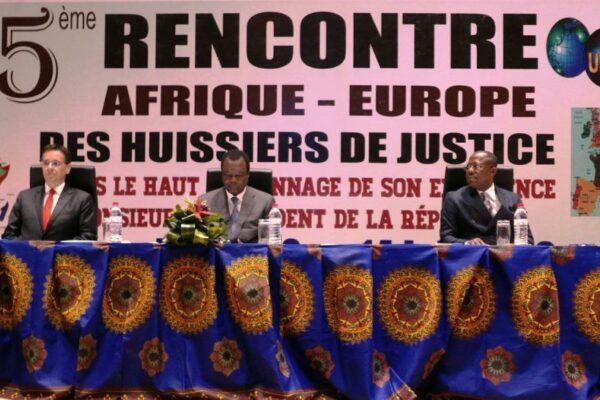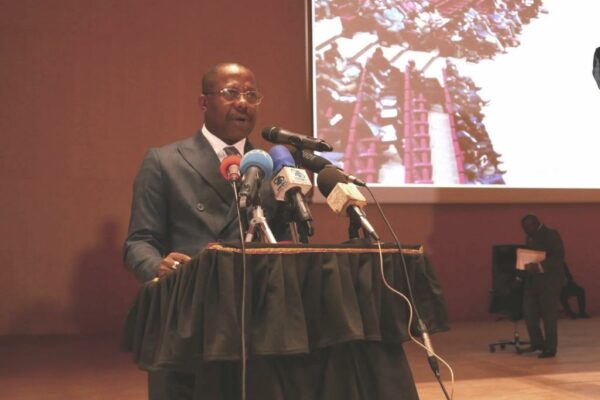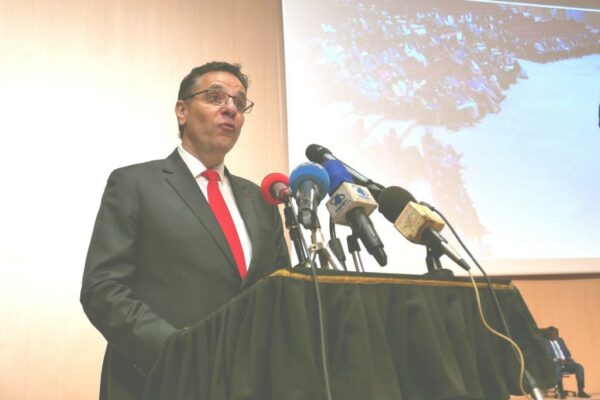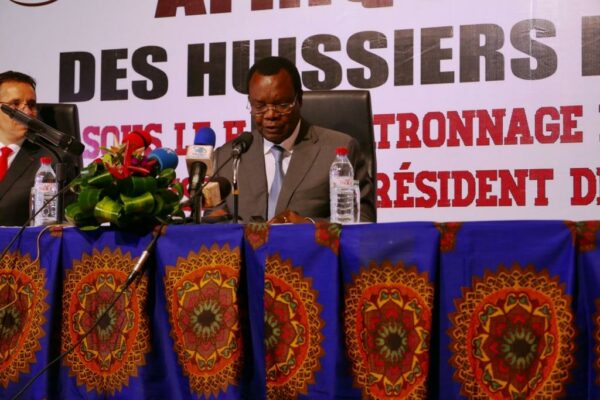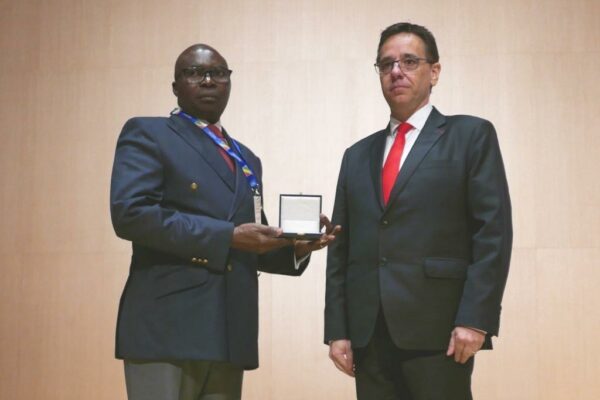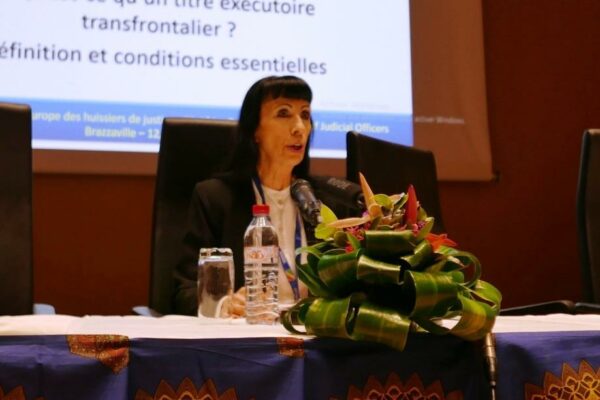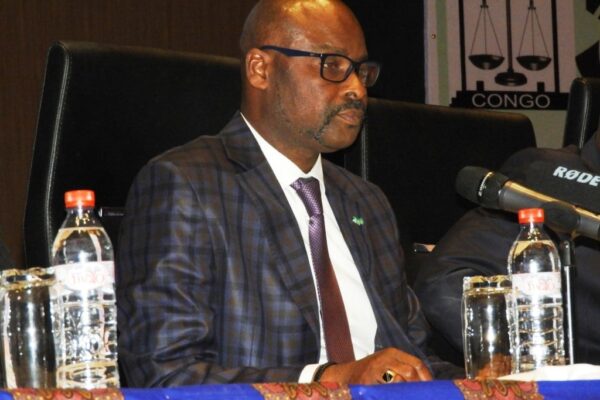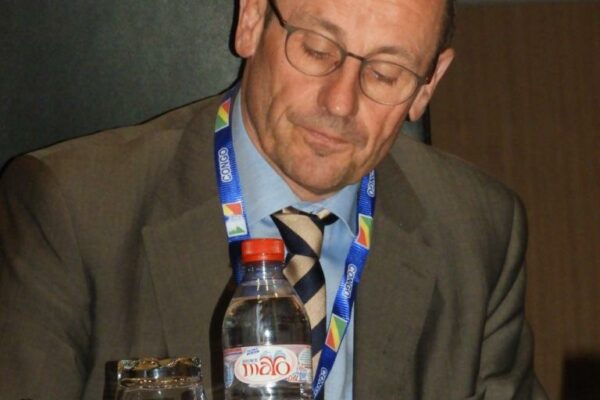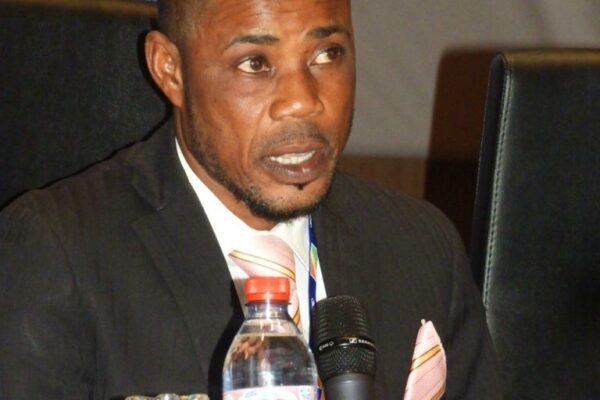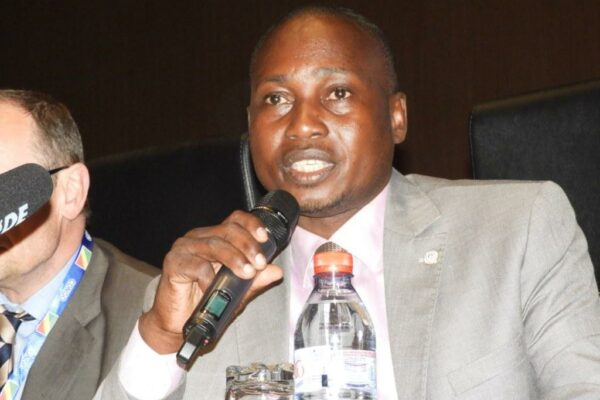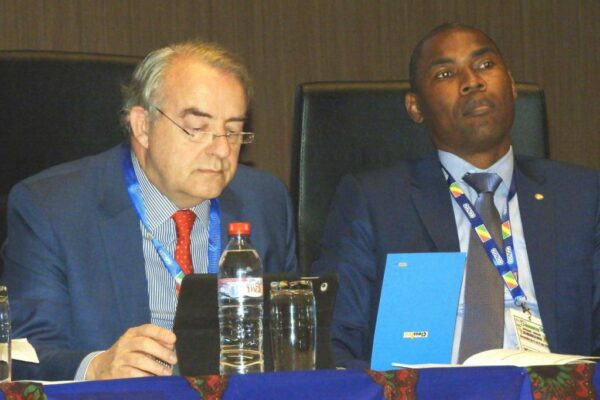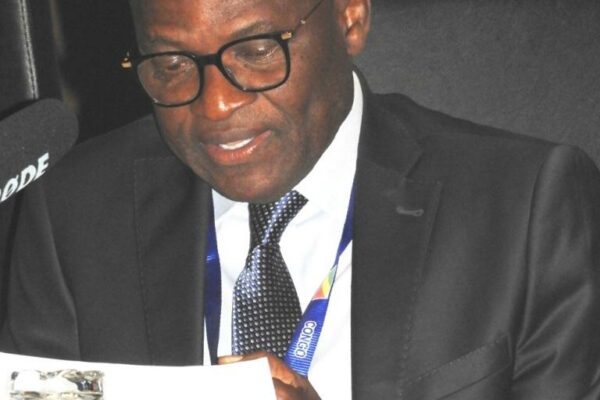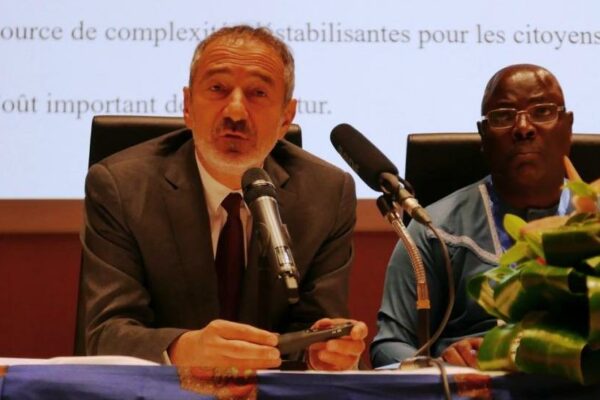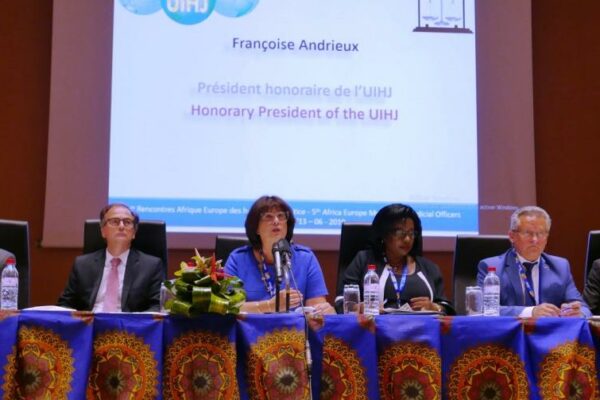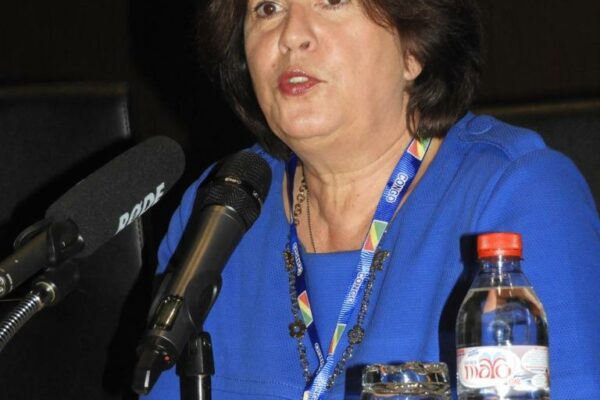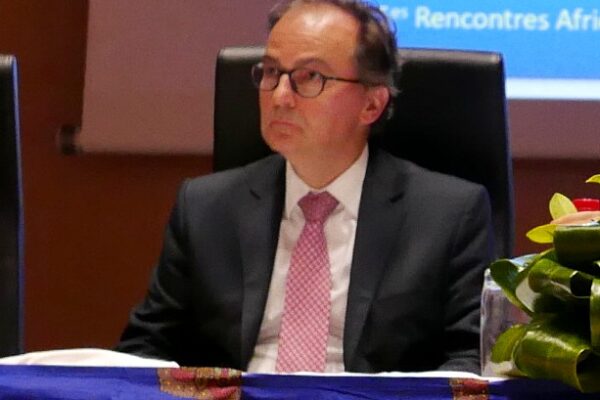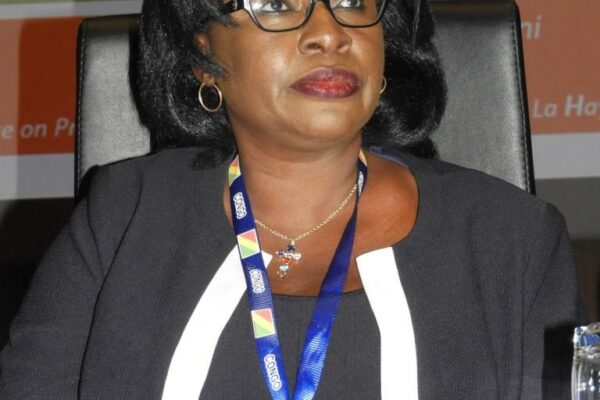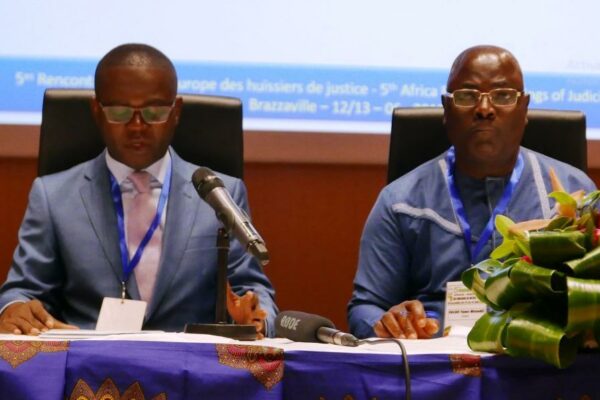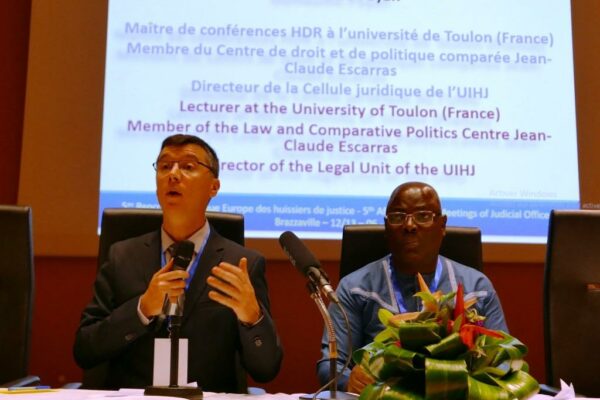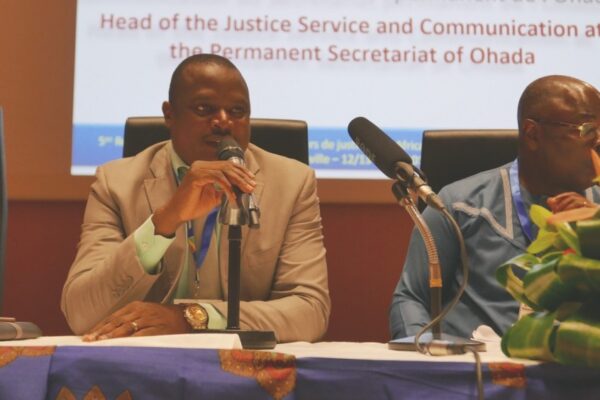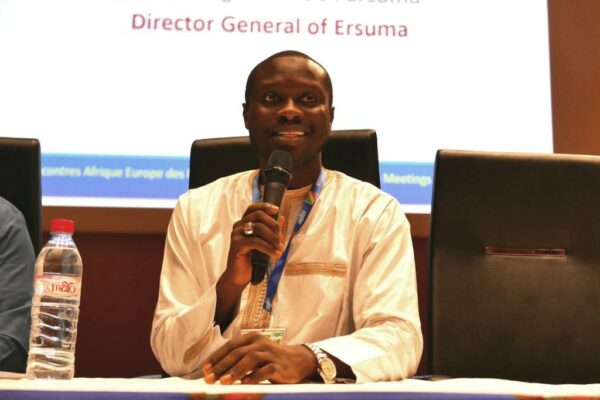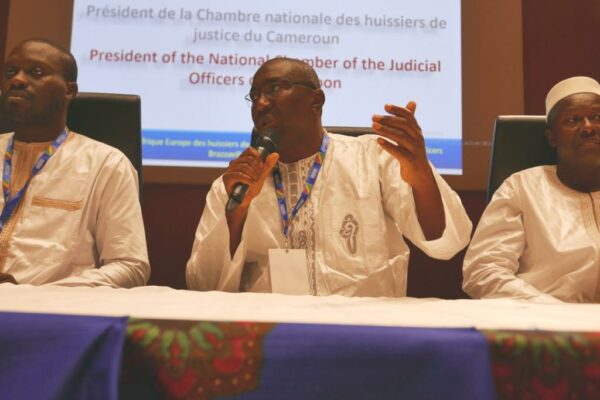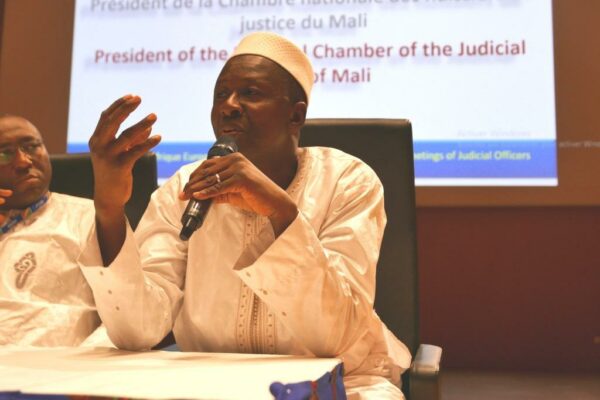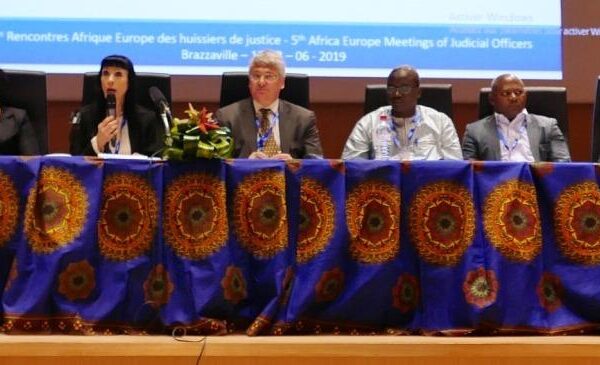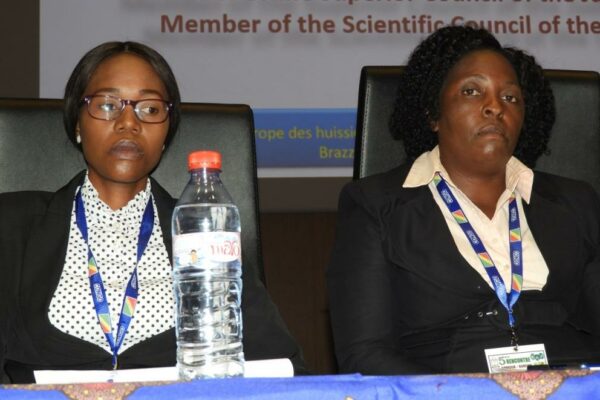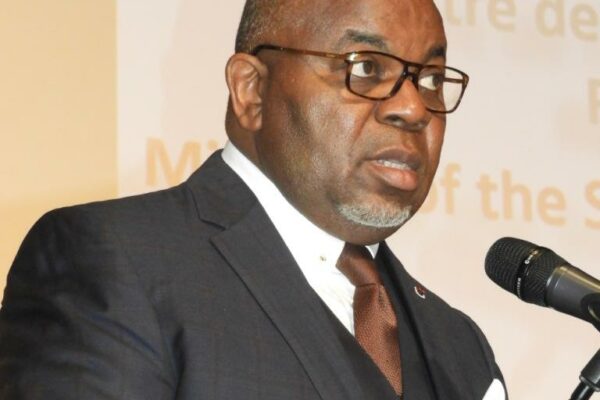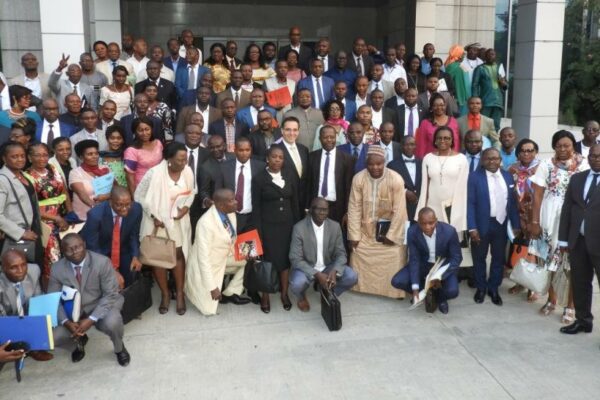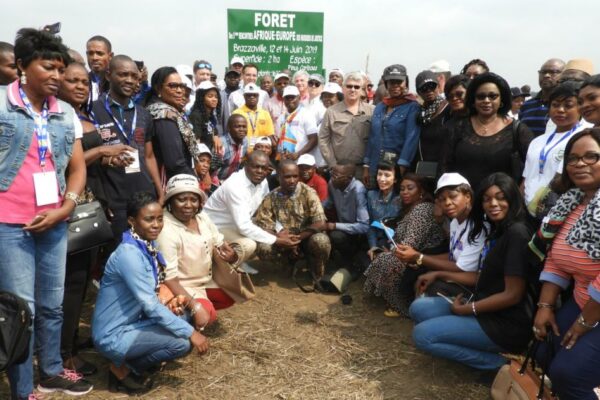The UIHJ and the National Chamber of Judicial Officers of Congo organised in Brazzaville from 12 to 14 June 2019 the 5th Africa Europe Meetings of Judicial Officers on the theme of “Cross-border Enforcement: Towards an Enforceable African Title? “
Since 2008, the UIHJ organises meetings allowing European and African judicial officers to meet on African soil. After Gabon (2008), Cameroon (2010), Togo (2013) and Senegal (2016), it was up to Congo to host the judicial officers from both continents, around the topic of cross-border enforcement. The meetings were under the high patronage of His Excellency Denis Sassou-Nguesso, President of the Republic of Congo. The representatives of nineteen African and European countries, Ohada, Ersuma and the Hague Conference on Private International Law could discuss the interest for institutions, citizens, investors and economic actors, to introduce an enforcement title that would facilitate the cross-border enforcement of court decisions in Africa, particularly in the Ohada zone.
Nearly 300 participants, judicial officers, academics, business lawyers, from 19 countries took part in the work at the Kintélé International Conference Centre (Benin, Belgium, Burkina Faso, Chad, Congo, Democratic Republic of Congo, Cameroon, France, Gabon, Guinea Conakry, Ivory Coast, Mali, Niger, the Netherlands, Senegal, Spain, Togo, Russian Federation and Zambia). The following international organisations were represented and intervened in Kintélé: The Hague Conference on Private International Law, Ohada, Ersuma and the African Union of Judicial officers (UAHJ). The board of the UIHJ was represented by a strong delegation led by its president, Marc Schmitz. These meetings were also highlighted by the presence of two honorary presidents of the UIHJ, Jacques Isnard and Françoise Andrieux, whose presence was warmly welcomed.
Prior to these meetings, the Training Unit of African Judicial Officers (Ufohja) and the UIHJ, in partnership with the Ohada Regional Superior School of the Magistracy (Ersuma), organised on 11 June 2019 to the intention of African judicial officers and business lawyers, in the conference room of the Ministry of Justice, Human Rights and the Promotion of Native People, a training seminar entitled ” Enforcement Immunities in the Ohada Area”. This seminar was provided by Professor Mayatta Ndiaye Mbaye, Director General of Ersuma, Jean Michel Rouzaud, President of the National School of Procedure of Paris (ENP), and Rigobert Ndalou, Judicial officer in Dolisie (Congo).
At the opening ceremony, led by Jean-Fernand Makosso, judicial officer in Brazzaville, the Congolese authorities were represented by the First President of the Supreme Court of Congo, the General Prosecutor at the Supreme Court of Congo, and advisers to the President of the Republic of Congo and the Prime Minister of the Republic of Congo. In his opening speech, Jean-Didier Bidié, President of the National Chamber of Judicial Officers of Congo, welcomed in Congo all participants from the 19 participating countries, as well as the representatives of international organisations and institutions. Jean-Didier Bidié recalled the objectives of the Africa Europe Meetings of Judicial Officers, thanking the President of the Republic, Denis Sassou-Nguesso, for his unwavering support throughout the preparatory work. He reminded that the idea of an African Enforcement Title had been presented during the 21st International Congress of Judicial Officers in Cape Town (South Africa) in 2012. He emphasised the relevance of such an idea in the 17 Ohada countries, a sign of trust and legal certainty. Finally, he wished a pleasant stay on Congolese soil to all participants.
Marc Schmitz, President of the UIHJ, noted that the interest aroused at the highest level by the 5th Africa Europe Meetings of Judicial Officers shows that justice and the enforcement of court decisions in the Republic of Congo are at the heart of national concerns. He mentioned the themes and recommendations of the previous meetings, stating that recommendations would again be submitted to the participants for approval at the end of the meeting. He confirmed that, as a force of proposal for more than 67 years, the UIHJ intends to put all its expertise in the search for adapted and realistic solutions to allow the creation of an African Enforcement Title whose legitimacy needs no proof. He pointed out that in Europe as well as in Africa, the judicial officers are today actual partners of the political decision-makers in the reflection on the bringing together of national legislations relating to enforcement professionals and proceedings. Since the mid-nineties, the UIHJ has wished to extend its influence on the African continent. The goal has been reached beyond all hope since 28 of the 90 UIHJ member countries are African. The profession is progressing on this continent, year after year. He stressed the importance of the new issues that will alter the profession of judicial officer in the coming years and recalled, as such, the importance of staying united around the UIHJ, one of the largest legal international organisations in terms of member countries. Then, the President of the UIHJ wanted to respect a minute of silence in memory of Pierre Adjo, judicial officer in Ivory Coast, who died in May 2019 from a violent and abject aggression during an enforcement proceeding, despite the presence of the police force. He assured his family and relatives of the full support of the UIHJ and announced that the UIHJ had decided to award Pierre Adjo the Gold Medal of the UIHJ, posthumously, immediately handed to the representative of Ivory Coast. After thanking President Bidié for the perfect organisation of the 5th Africa Europe Meetings, he wished all participants fruitful work.
Claude Nsilou, State Minister, Minister of Commerce, Supply and Consumption of the Republic of Congo, welcomed all participants and wished them and a pleasant stay in Brazzaville. He emphasised the interest of the Congolese authorities, led by the President of the Republic, in the proper enforcement of court decisions. He observed that the theme of the meetings would contribute to its strengthening, in line with the objectives of Ohada, and wished the work success.
These 5th Africa Europe Meetings of Judicial Officers were divided into two parts, namely, “Cross-border enforcement outside the European judicial area“, on the one hand, and “Cross-border enforcement in a Community judicial area: towards a title enforceable African? “, on the other hand. While it is true that Ohada is the pride of Africa, hailed by other continents, that the UIHJ has now become one of its technical partners and has forged close links with Ersuma, nevertheless, in order to continue to nourish this will and this ambition to see enforceable titles free from inefficiency, African countries should skirt some of their sovereignty in favour of African community and other laws. Moreover, enforcement titles in the Ohada space should fully take shape in the judicial systems of African states. This would undoubtedly be a considerable progress.
The work was brilliantly introduced by Natalie Fricero, Professor of Universities (France), Member of the Supreme Council of the Judiciary of France and member of the Scientific Council of the UIHJ. With her renowned dynamism, Professor Fricero set a framework for the work, evoking the notions of enforcement title in private international law and the aspects of the law concerned, highlighting the interest and the conditions of a harmonisation of enforcement titles at regional and global levels.
During two days, work developed around the two sub-themes, relying on domestic and international sources, European and African. The first workshop, concerning domestic sources, was chaired by Marcellin Comlan Zossoungbo, President of the National Chamber of Judicial Officers of Benin. The aim was to discuss the principles of recognition of foreign titles in domestic law and to specify the criteria for convergences as well as the different aspects of the law. The round table was composed of Frank Maryns, President of the National Chamber of Judicial Officers of Belgium, Bedel Kamba, notary in Brazzaville, Henri Mosengo Waya, President of the National Chamber of Judicial Officers of the Democratic Republic of Congo , Luis Ignacio Ortega Alcubierre, Vice-President of the UIHJ (Spain), Patrick Safar, Vice-President of the National Chamber of Judicial Officers of France, Member of the Board of the UIHJ, Adama Dia, President of the National Chamber Judicial officers of Senegal, and Alain Ngongang Simé, President of the UAHJ.
The panel on international sources and international instruments was chaired by Françoise Andrieux, Honorary President of the UIHJ. Christophe Bernasconi, Secretary General of The Hague Conference on Private International Law, presented the instruments of his organisation, including The Hague Convention on Private International Law of 15 November 1965 on cross-border service of judicial and extrajudicial documents in civil and commercial matters and the future judgments convention, the work of which is nearing completion (adopted end of June 2019). Mr Bernasconi, who regularly participates in the events organised by the UIHJ, once again regretted that so far only 6 African countries are members of the Hague Conference on Private International Law (Burkina Faso, Egypt, Morocco, South Africa, Tunisia, and Zambia), wishing that more African countries could join in order to ensure a better application of international private law at global level. Like the Hague Convention of 15 November 1965, the Ohada space could be based, in the light of the Treaty, on a mechanism for service of documents in a lighter community process. In addition, many countries have not yet ratified this convention. Here again, it is up to the States to put in place these mechanisms which would facilitate, surely, and then more effectively, the transmission of legal document and thus ensure the acceleration of the enforcement procedures.
Rosine Bogore Zongo, President of the National Chamber of Judicial Officers of Burkina Faso, presented the New York Convention of 20 June 1956 on the recovery of maintenance abroad. Jos Uitdehaag, secretary of the board of the UIHJ (The Netherlands), spoke about the New York Convention of 10 June 1958 for the recognition and enforcement of foreign arbitral awards. Finally, Mohamed Mouctar Sylla, Secretary General of the National Chamber of Judicial Officers of Guinea, described the various international jurisdictions.
Françoise Andrieux continued her role by chairing the round table on instruments at regional and bilateral level: the Minsk Convention of 22 January 1993 on Legal Aid and Legal Relations in Civil, Family and Criminal Cases, Lugano Convention of 16 September 1988 on Jurisdiction and the Enforcement of Judgments in Civil and Commercial Matters, the Benelux Court of Justice (case law on penalty payments/astreinte), and the bilateral instruments on mutual recognition of enforcement titles. The round table was attended by Jos Uitdehaag and Vladimir Voronin, Deputy Chief Judicial Officer of the Russian Federation, Deputy Director of the Federal Service of Judicial Officers of the Russian Federation, who were able to share their experience in this area.
The second sub-theme of the conference “Cross-border enforcement in a Community judicial area: towards an African enforceable title?” was introduced by Jerome Okemba Ngabondo, judicial officer in Brazzaville. He particularly stressed the interest of the creation of an enforceable title, considering that the ideas developed during the 21st International Congress of Judicial Officers of Cape Town in 2012 were more relevant than ever.
The first workshop, chaired by Rémy Eklou Jawo, President of the National Chamber of Judicial Officers of Togo, focused on the cross-border circulation of titles obtained in accordance with national legislation, first in Europe, then in Africa. Regarding Europe, Guillaume Payan, lecturer at the University of Toulon (France), director of the Legal Unit of the UIHJ, successively discussed the specificities of the community treaties and means of action available, then the regulations for recognition and enforcement of decisions: European Enforcement Order, Brussels I Bis Regulation, Brussels II Bis Regulation, Regulations on maintenance obligations, inheritance, registered partnership, matrimonial property regimes, insolvency settlement, or protective measures. With regard to Africa, the topics addressed concerned the exequatur procedure, the specificities of the Ohada and Uemoa judicial areas, and the enforcement title outside a uniform act on enforcement. This round table brought together Alexis Ndzuenkeu, Head of the Legal Affairs and Communication Department of the Permanent Secretariat of Ohada, Mayata Ndiaye Mbaye, Director General of Ersuma, Samuel Ename Nkwane, President of the National Chamber of Judicial Officers of Cameroon, Hervé Dembelé, Vice-President of the National Chamber of Judicial Officers of Ivory Coast, and Boubacar Diallo, President of the National Chamber of Judicial Officers of Mali.
The second part, chaired by Mathieu Chardon, 1st Vice-President of the UIHJ, addressed the issue of cross-border circulation of titles obtained in accordance with Community legislation, in Europe, then in Africa. The round table allowed Natalie Fricero to present the main lines of the various European regulations constituting autonomous enforcement titles (European Order for Payment, Small Claims Regulation, and the European Account Preservation Order Procedure), and to acknowledge their effectiveness. In Africa, Florentin Mba Menie, President of the National Chamber of Judicial Officers of Gabon, Amadou Tanimouddari, President of the National Chamber of Judicial Officers of Niger, Djerandoh Boukar Ozias, Judicial officer (Chad), Pumulo Kalaluka Mubita and Claudia Luswili, magistrates (Zambia), were able to discuss the Ohada and Uemoa areas, and other regional areas such as the Southern African Development Community (SADC).
In conclusion of the work, Jérôme Okemba Ngabondo again stressed the urgent interest to work on the implementation of an African Enforcement Title, beginning with the Ohada area, which could concern a general enforcement title for the decisions obtained according to national law, but also an African Order for Payment, an African Order to issue or return, or an African Account Preservation Order Procedure. Following his presentation, he read out the recommendations prepared as part of the work, which were adopted by all heads of delegation.
The work was closed by an official ceremony during which Jean-Didié Bidié, Marc Schmitz and Bruno Itoua, Minister of Higher Education of the Republic of Congo, in turn addressed their thanks to the participants, welcomed the perfect organisation of the 5th Africa-Europe Meetings of the judicial officers and the exceptional reception reserved for each one, and wished all a good end of stay in Brazzaville.
A splendid gala dinner was offered in the evening by the National Chamber of Judicial officers of Congo. On 14 June 2019, a memorial forest planting ceremony of the 5th Africa Europe Meetings of Judicial Officers took place in Bambou-Mingali, in partnership with the National Programme of Afforestation and Reforestation (Pronar), followed by a musical ballad on the majestic Congo river.
Recommendations of Brazzaville
Recommendation 1
Recalling that mutual trust is the necessary condition for the free circulation of enforceable titles between States;
Recalling that this mutual trust is taken into consideration in the treaty of Ohada;
Considering the globalisation of trade and the steady increase in cross-border transactions,
Considering that only a free cross-border circulation of enforceable titles allows economic and social development, guarantees legal certainty and therefore the rights of investors;
Considering that the creation of a cross-border enforcement order fits perfectly into the strategy developed at global level by the Hague Conference on Private International Law;
Recalling that this mutual trust is taken into consideration in the treaty of Ohada;
Considering the globalisation of trade and the steady increase in cross-border transactions,
Considering that only a free cross-border circulation of enforceable titles allows economic and social development, guarantees legal certainty and therefore the rights of investors;
Considering that the creation of a cross-border enforcement order fits perfectly into the strategy developed at global level by the Hague Conference on Private International Law;
We, participants in the 5th Africa Europe Meetings of Judicial Officers,
Recommend the creation of an African Enforcement Title.
Recommendation 2
Considering that Judicial Officers have become true partners of policy makers in the reflection on the approximation of national legislation relating to professionals and enforcement procedures;
We, participants in the 5th Africa Europe Meetings of Judicial Officers,
Recommend that heads of delegations of UIHJ and Ohada member states promote the creation of an African Enforcement Title in their respective ministries of justice.
Recommendation 3
Considering the permanent action of the UIHJ for the improvement and simplification of the execution of enforcement titles, particularly in the framework of the technical partnership with Ohada;
We, participants in the 5th Africa Europe Meetings of Judicial Officers,
Recommend to the UIHJ to cooperate in the creation of an African Enforcement Title.
Done in Brazzaville, Republic of Congo, on 13th June 2019


